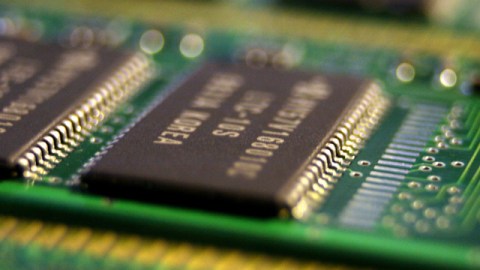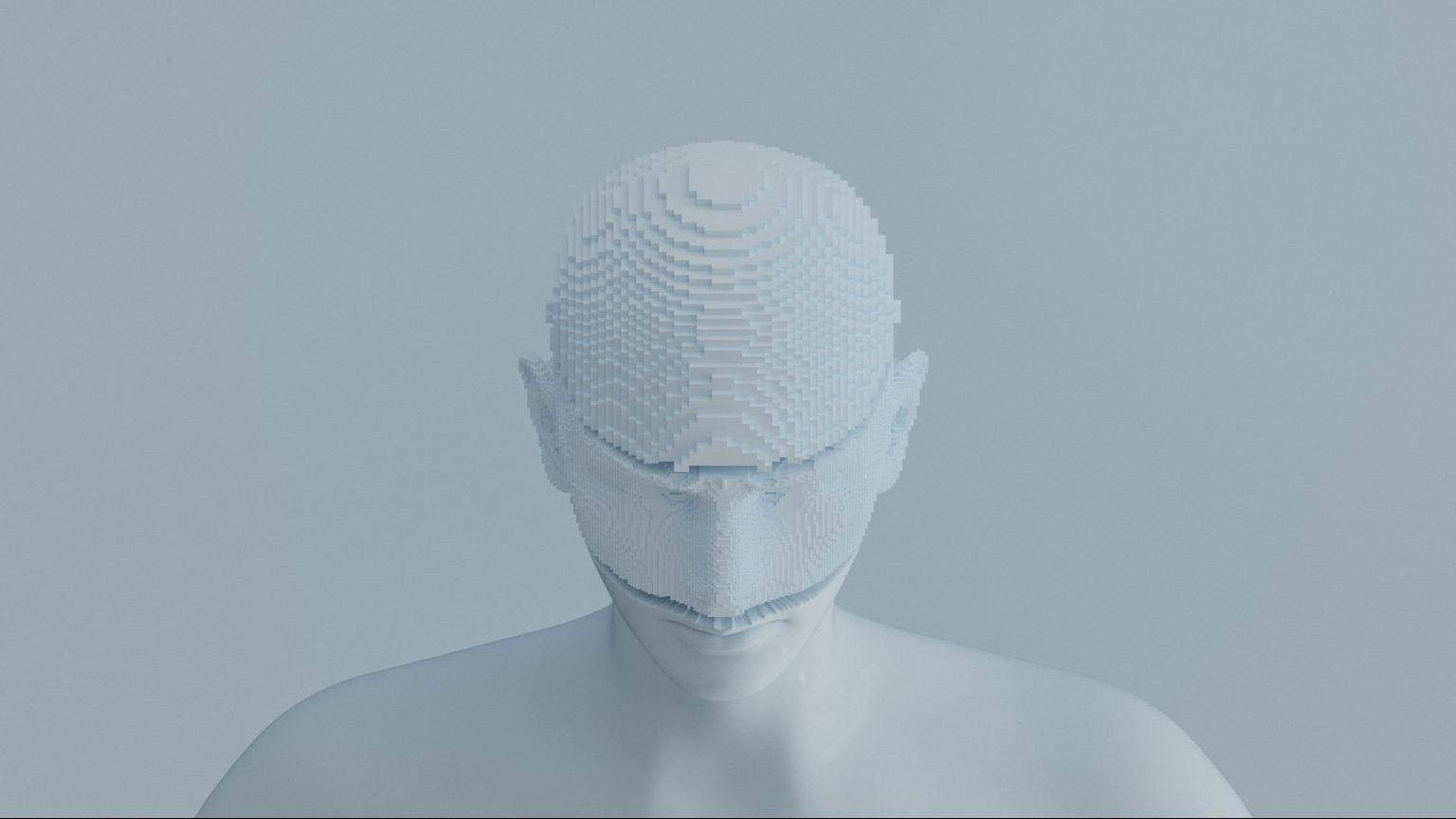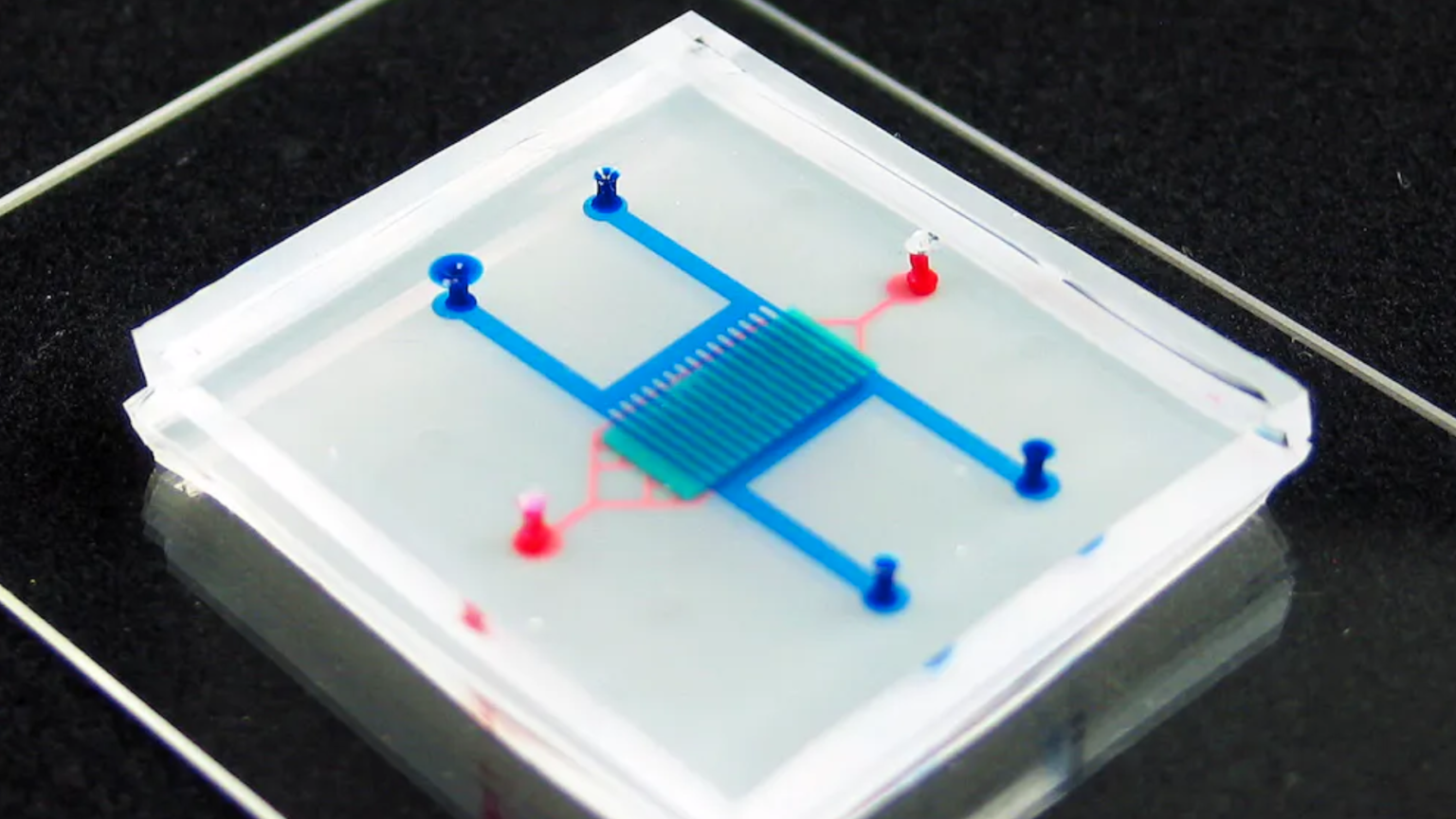#32: Implant Memory Chips in Our Brains

Dr. Gary Marcus, a psychology professor at New York University, tells Big Think that we should develop a “Google-like” chip to implant in our brains that would use our neurons like a search engine and enhance human memory.
“Human memory is not all that efficiently organized as compared to computer memory,” says Marcus. “In a computer, every memory goes to a pre-allocated location. In a human being, it’s sort of like a shoebox full of memory. It’s sort of all there, but it’s disorganized. We don’t quite know how to pull out the particular thing that we want.”
Marcus developed the idea for a memory-enhancing brain chip after writing his 2008 book “Kluge” (whose title refers to the computer-science word for a clumsy solution). The kluges Marcus describes in his book are the human mind’s limitations, which he thinks stem mostly from memory. “The thesis of that book, was that human mind is a kluge,” says Marcus, “And one of the principal reasons that I think it’s a kluge is because our memory is so poorly organized relative to how much memory it works.” It then became obvious to Marcus that a memory-enhancing brain chip would be incredibly useful for people.
“There are ways that we already have narrow solutions to our memory problems,” says Marcus, but he says they are hacks—plastic devices to organize medicine and pills, electronic devices to find missing car keys, new applications to find misplaced iPhones. “We need all of these things because our memories are so fundamentally disorganized,” he says.
Marcus thinks the foremost technical obstacle is that “we don’t really understand enough about how the brain works.” In order to augment human cognition, he says, scientists must first efficiently read brain code, and understand what type of memory is unique to humans, as well as how the brain stores declarative information—like where the car keys are. Marcus says the easier part of implementing the technology is the computer side, as there are already machines that can store large quantities of information. “The amount of computer memory to solve that problem is trivial,” says Marcus, “The hard part is to translate between what’s in the brain and getting into that computer representation.”
While Marcus is not personally working on advancing the science behind his theories, he does know scientists working in this direction. For instance, Miguel Nicolelis of Duke University’s Center for Neuroengineering, discovered in 2005 how to make monkeys control robotic arms with their brains, initiating right, left, up, and down movements. Marcus says this is in the right spirit of lab work for translating brain activity, but it still doesn’t grasp how the robot arm would work in between tasks, or remember what movements to instigate in memorized and sequential order.
Two other challenges concern Marcus: privacy and equality. The former—securing people’s personal and private memories—seems easiest to overcome, as a computer-based issue. The latter—making sure that the technology is available to everyone—is a crucial consideration. Marcus calls the chip a “steroid for the brain,” and says it will inevitably be made and sold. Therefore, understanding brain code, and connecting it with a computer chip, is the next pivotal frontier, analogous to how cracking the DNA code astronomically progressed science.
Takeaway
Computers store information like a stack of trays in a cafeteria, where the last tray placed put down in the stack is the first in line to pick up. This is what Dr. Gary Marcus calls embedded layers—taking care of the most pressing issue at hand. He says that “people are terrible at that. You’re supposed to get groceries, but then you get a phone call. At the end of the day you’re tired. You end up driving home on autopilot.” Marcus believes that a memory-enhancing brain chip will help solve these human limitations.
Why We Should Reject This
“There seem to be really important functions to forgetting,” says Dr. Ellen McGee, a medical ethicist and retired Long Island University C.W. Post professor. While McGee focuses her research on the ethical implications of using any type of neural interfacing, she says it is unclear that a memory-enhancing device will be good for humans.
McGee is concerned with how brain chips might affect vulnerable populations: children, prisoners, and countries with dictatorships and a lack of democratic input. “What of those who are not able to control it,” she says, noting that commercially available brain chips will exacerbate inequity. “If you’re going to change humans radically and you leave some humans out of the equation, they’re really going to be second class citizens. But if we wanted to provide this kind of technology for everyone, how would we afford it?”
McGee doesn’t think brain chips should be banned altogether, but she does advocate for regulations at a state, national, and international level that will overlook both the production and distribution of neural implants. The creation of a memory enhancing device seems inevitable, so it’s crucial that its use is overseen, she says, because these chips will radically affect humans.
“We have memories that cause us trauma,” says McGee, “We have memories that make us guilty. We have memories that if we were flooded with them, might keep us from being able to act in the present, and to enjoy the present. So, it’s not clear how humans with ‘total recall’ would function.”
More Resources
— “Implantable brain chips: ethical and policy issues,” 2001 paper by Dr. Ellen McGee and colleague Dr. Gerald Q. Maguire, Jr.
— “Potential of Using Brain Power to Propel Prostheses advance at Stanford,” a 2006 news release by Stanford University’s School of Medicine.
— The Human Hard Drive: How We Make (And Lose Memories), Big Think/Going Mental.





